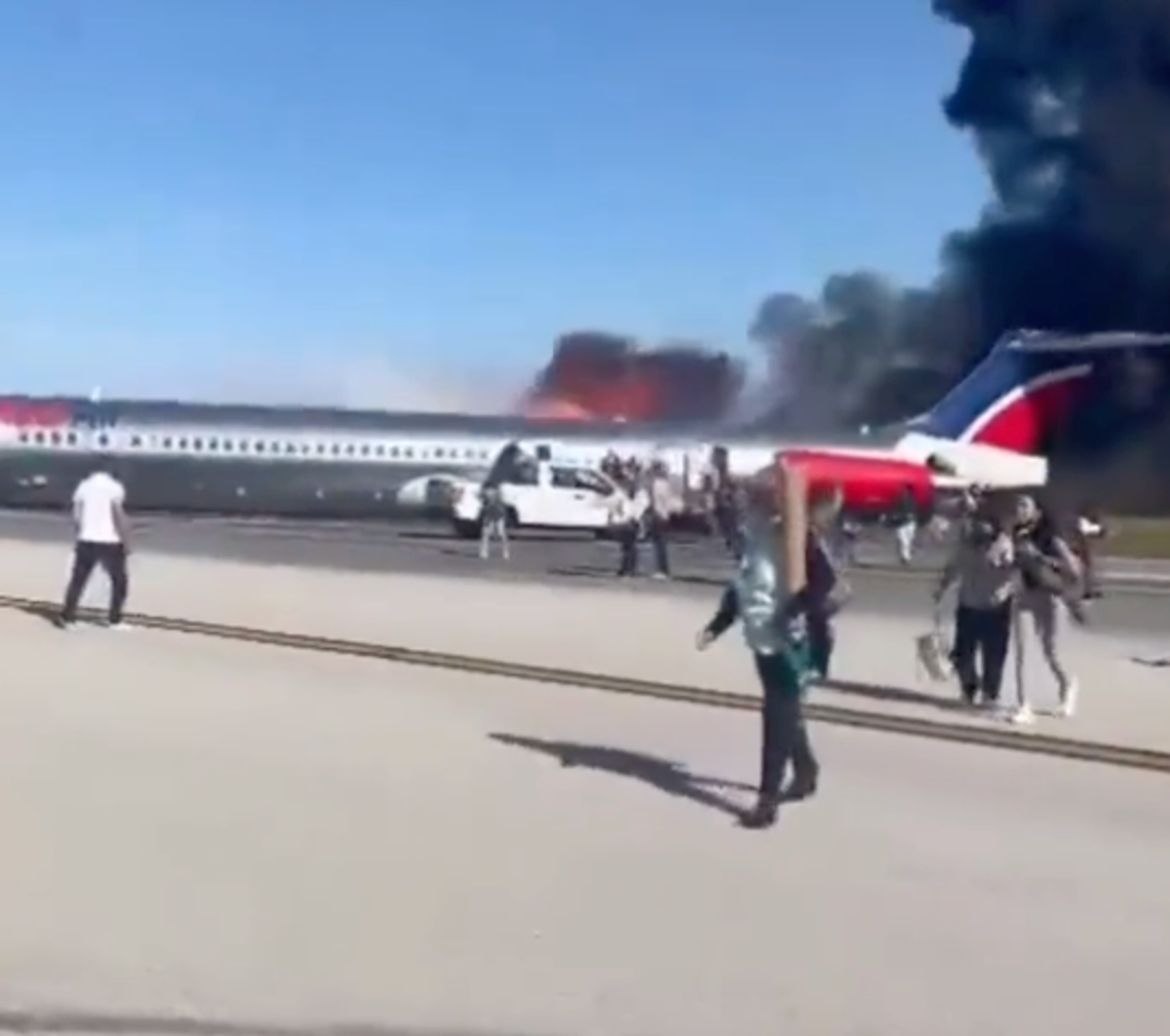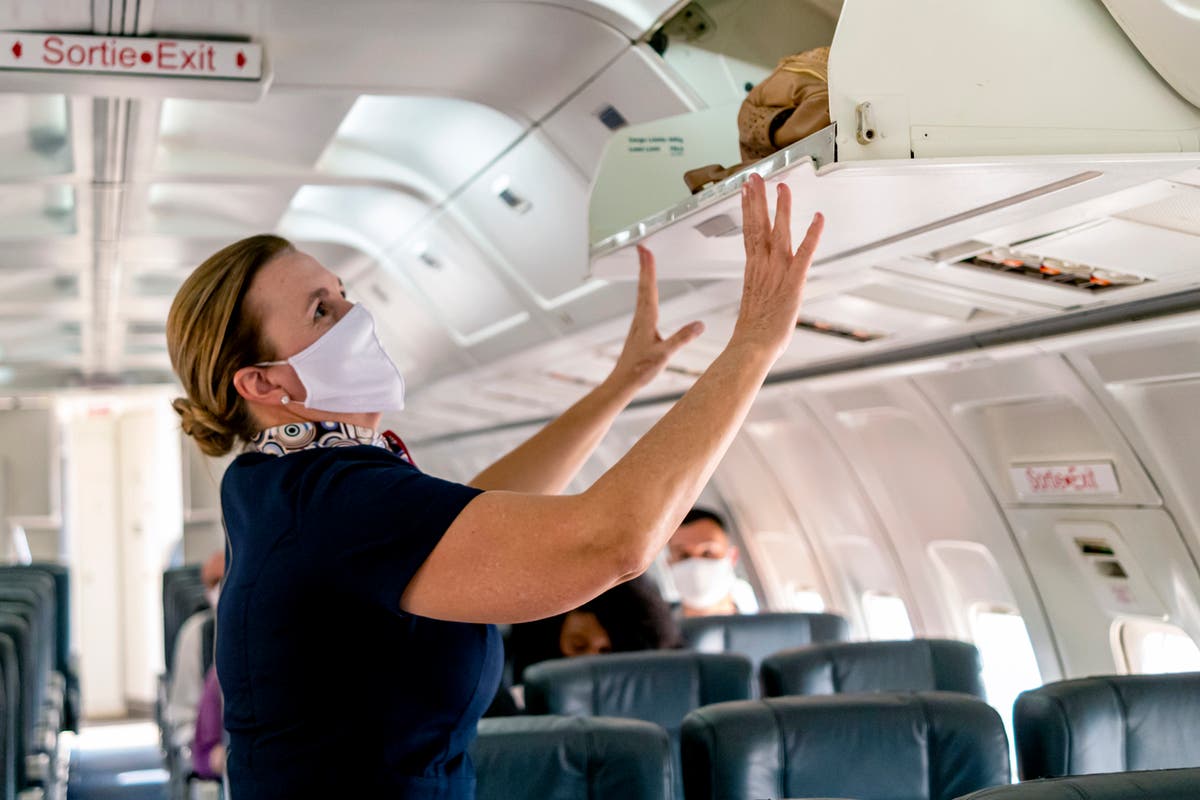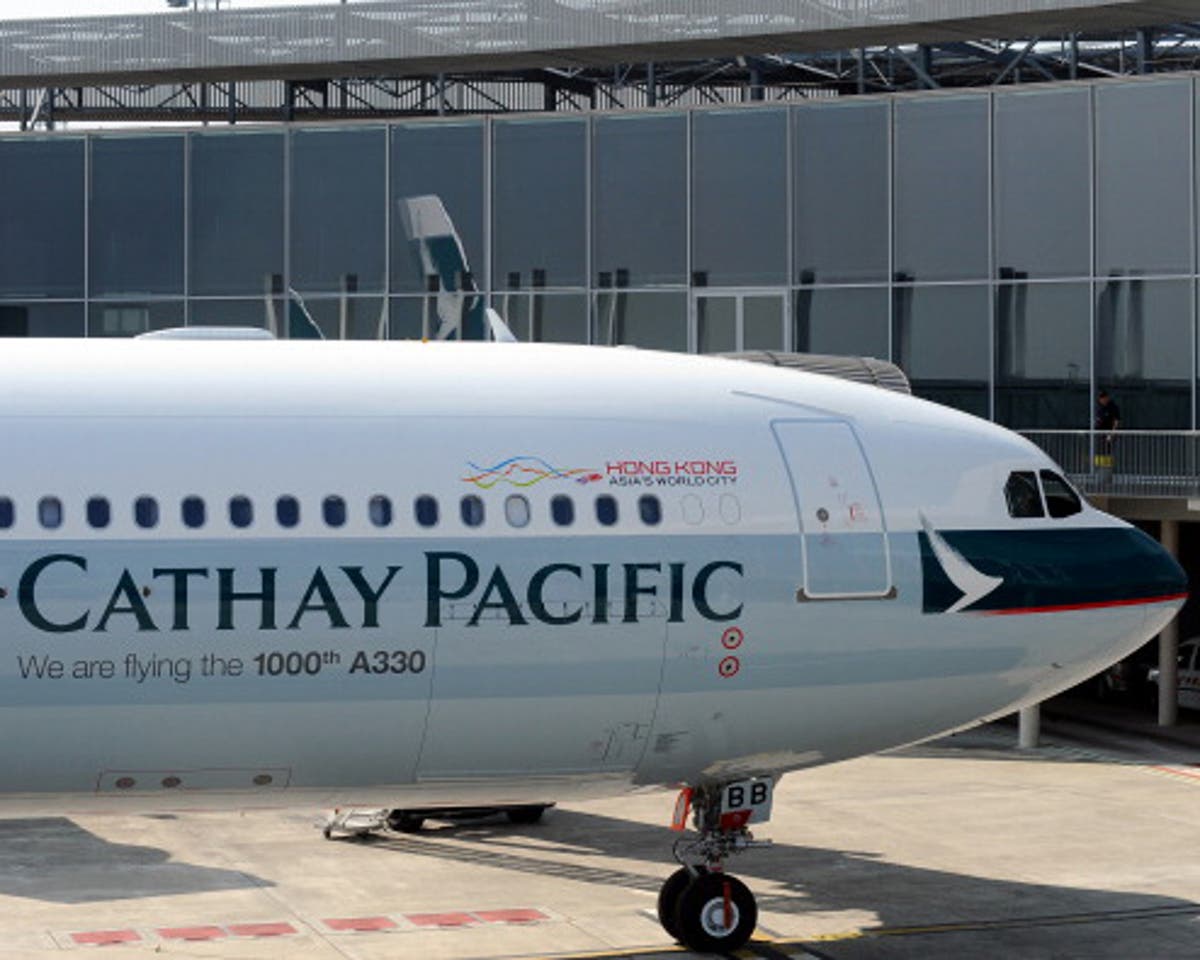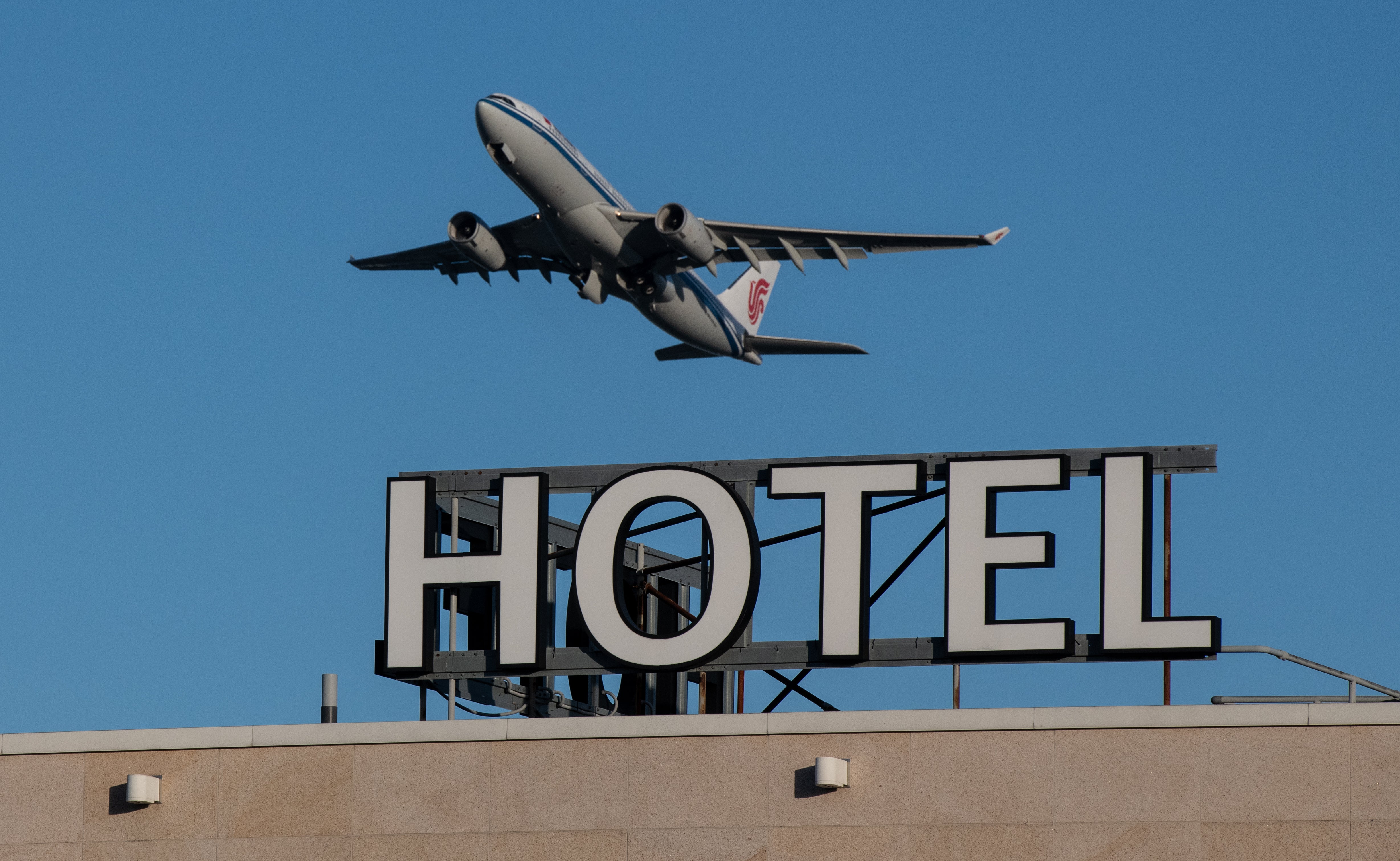Passengers risk lives by evacuating crashed plane with hand luggage
Smartphone footage shows passengers leaving smoking aircraft with trolley bags

Passengers evacuated from a plane that crash landed at Miami International Airport last week were seen carrying their hand luggage with them.
The plane’s landing gear failed as the Red Air flight arrived in Miami from the Dominican Republic on 21 June, leading to an emergency landing that resulted in black smoke billowing from the rear of the plane.
In video filmed on a passenger’s smart phone, travellers carrying small wheeled bags and other hand luggage are seen evacuating the plane via an emergency slide and walking away across the tarmac.
All 126 passengers and crew of the Red Air flight were evacuated safely following the crash landing in Miami, with three passengers taken to hospital and treated for minor injuries.
But the actions of those passengers stopping to collect their belongings could have led to much more serious consequences, according to Dai Whittingham, chief executive of the UK Flight Safety Committee, an association of professionals dedicated to the improvement of commercial aviation safety.
“When passengers decide to take their carry-on bags with them it places other passengers at severe risk. There have been fatal accidents where investigators have found bodies near to open exits, the individuals having been overcome by fumes from a post-crash fire just seconds away from escaping,” he said.
“When you decide to take your trolley-bag in these situations, it is a very selfish act. The stark reality of your choice is that you believe your baggage is worth more than the lives of the people behind you. Your bag also risks damaging the escape slide, which will further compromise the survival chances of others, and it very likely to cause someone an injury.”
As part of pre-flight safety briefings, passengers are advised to leave all belongings behind in the event of an emergency evacuation. This is to prevent delays to evacuation and ensure that passengers and crew are able to disembark as quickly as possible. Large passenger aircraft can only be certified to fly if they are able to demonstrate that they can be fully evacuated in 90 seconds.
This is not the first time that passengers have been seen ignoring safety advice. Sara Nelson, president of the US Association of Flight Attendants-CWA union, told the New York Times: “We have seen this issue of passengers trying to get their bags in an emergency over and over again in recent accidents.
“This has been identified as a safety risk by the [US] National Transportation Safety Board and confirmed by the Federal Aviation Administration.”
It’s an issue in Europe too. In 2018, passengers aboard a Ryanair flight from Barcelona to Ibiza were evacuated before take off after a mobile phone burst into flames. Some were seen carrying hand luggage, while others crashed into each other as they came down the evacuation slides.
That same year, a survey by the Royal Aeronautical Society found that 35 per cent of 2,000 respondents would retrieve some or all of their belongings in the event of an emergency evacuation with an immediate threat to passengers. A much higher proportion – 75 per cent – said they would retrieve their belongings during an evacuation with no threat to passengers.
In a statement released at the time, Terry Buckland, chair of the Royal Aeronautical Society Flight Operations Group, said: “The fact that so many passengers would decide to stop and collect some or all of their belongings during an emergency evacuation is a worrying finding.
“Airline operator safety briefings instruct passengers to leave all their belongings in the event of an emergency evacuation for clear safety reasons. Passengers will not have a full appreciation of the nature and seriousness of an emergency and should not be ignoring or questioning crew commands.
“Aviation authorities and operators should consider if current requirements, as well as industry practices, support the most rapid and safest emergency evacuations. Where it is identified that there are shortfalls or potential improvements, Aviation Authorities should take the necessary actions.”
A spokesperson for the Civil Aviation Authority said: “In an emergency situation, where the crew tell passengers to evacuate the aircraft, it is vital that everyone follows the crew’s instructions and leaves the aircraft as quickly as possible. That means leaving all cabin baggage and belongings behind.
“An emergency evacuation will only take place if there is a significant safety risk. So, even if the cause of the emergency isn’t obvious within the aircraft, it is imperative that everyone gets off the aircraft as quickly as possible and that passengers don’t block the escape of themselves and others by trying to take baggage and belongs with them.”

 Troov
Troov 































